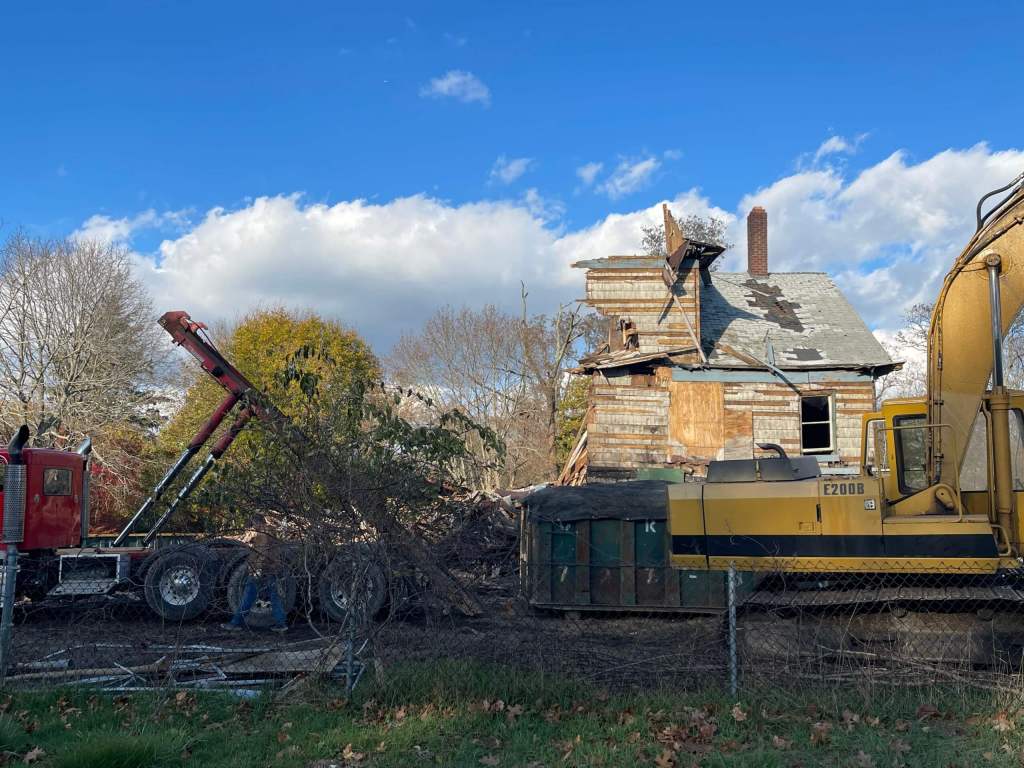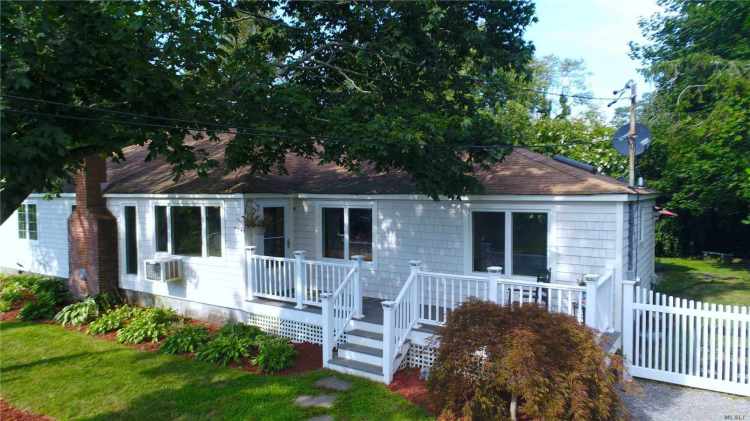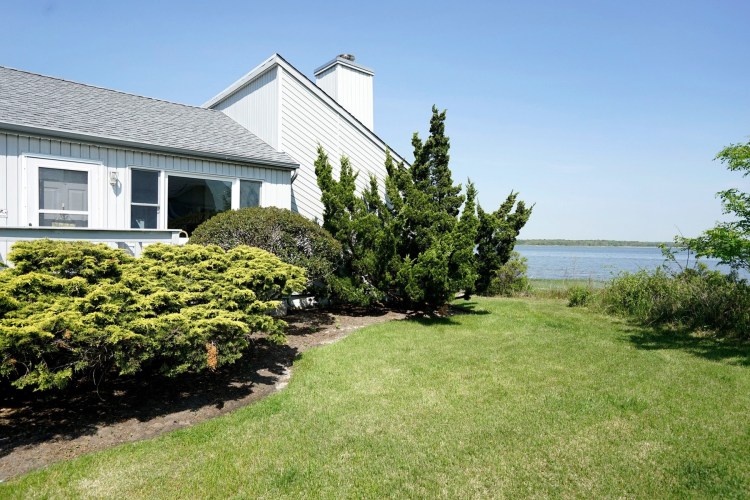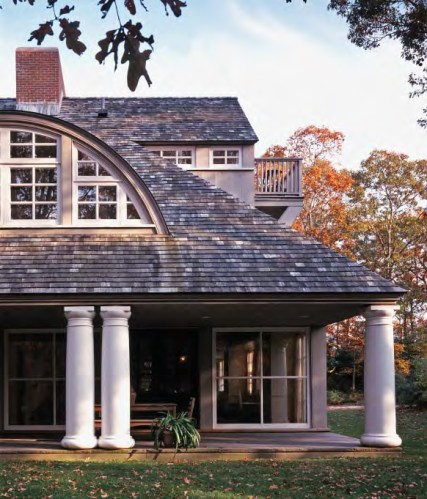After years of neglect, the former Brewster House, once the symbol of Flanders’ past as a destination for hunting, has finally been demolished.
On Thursday, the last remnants of the former hunting lodge, which is said to have hosted guests like Franklin Delano Roosevelt (before he was president) and Al Capon, came down following several days of work, including asbestos abatement bulldozing.
This summer, the Southampton Town Board approved the purchase of the 1.8-acre parcel at 1380 Flanders Road, using $400,000 from the Community Preservation Fund earmarked for water quality improvement purposes. In turn, the blighted building from the 1880s, once a hunting lodge, was torn down.
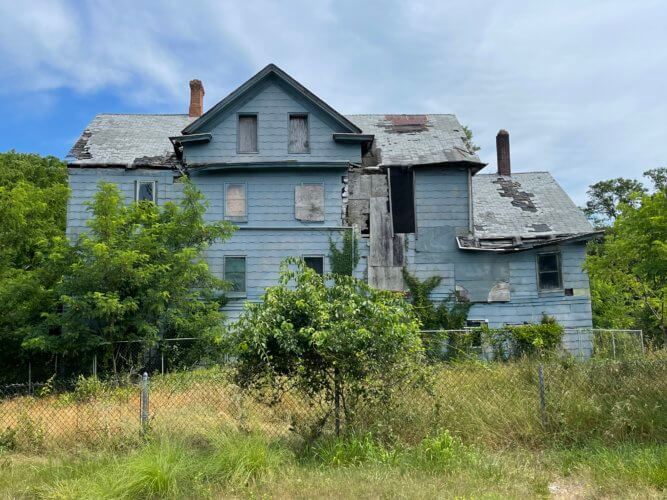
The house has long been a cause for safety concerns since the late 1980s when a fire badly damaged it. In recent years, developers contemplated restoring the property to its former glory as a hotel. At one time, plans for the Brewster House Hotel, an $8 million project, even included an indoor pool, a small restaurant, a meeting room and a library-style coffee shop.
Brewster House’s Place in Flanders History
During the boarding house era — 1875 to 1920 — “Flanders also became well known throughout the greater New York area as a secluded retreat for sportsmen,” according to the Flanders Hamlet Heritage Area Report, which was published to provide a “historical sketch” in April of 2014.
Founded in 1880, Captain Robert W. Penney’s Grove House, which would later become known as the Brewster House, was the area’s “grandest hotel,” the report says. The exclusive Flanders Club, whose members were wealthy New York City businessmen, built a lodge and headquarters next to the hotel, later taking over its operations so that it could be reserved for its club members during the hunting and fishing seasons.
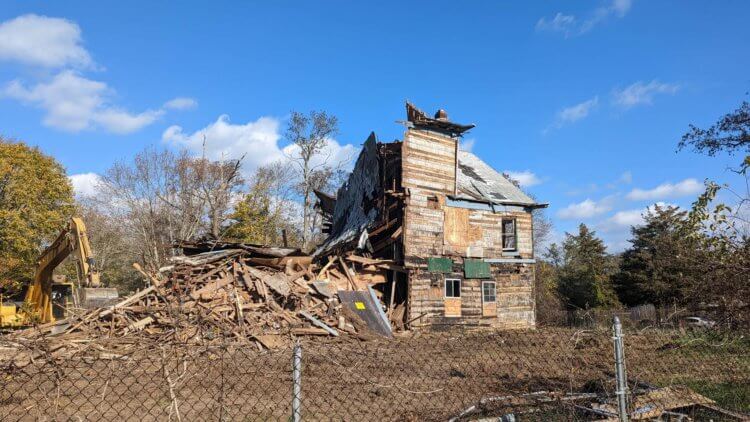
The Flanders Club — not to be confused with the Flanders Men’s Club — owned 3,000 acres of marsh and upland around Flanders and leased another 7,000 acres, “stocking the ponds and streams and raising thousands of game birds that were later released on club lands,” the report says. “This gave them exclusive hunting privileges on a majority of the lands from Canoe Place (site of the present day Shinnecock Canal) westward to Riverhead, and from Shinnecock Bay north to the Peconic Estuary.”
The Brewster family purchased Captain Penney’s hotel and converted it to a 28-room boarding house in 1922, according to the report.
“But as the 1920s ‘roared’ towards a close in Flanders, so too did the period of prosperity that had existed for more than a century,” the report states.
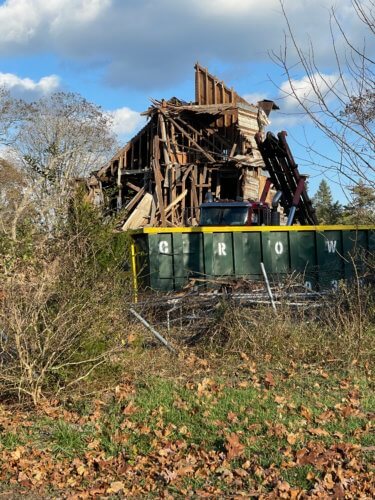
The building was later used as police headquarters — Police Chief William Ashauer committed suicide there in 1959, according to the report.
The three-and-a-half-story blue building was described in a report as having central cross-gabled dormers accenting the front and side elevations and appendages to each side and the rear, as well as double-hung windows throughout. It had been added to and changed over the years, once sporting a full-width front porch. The asbestos shingles were the first to be removed during a visible abatement process over the past few weeks.
Gary Cobb, the founder of Flanders Village Historical Society, told the Riverhead News-Review in 2010 that beams in the structure’s basement indicate that parts of it may date as far back as the 17th century.
Email tvecsey@danspapers.com with further comments, questions or tips. Follow Behind The Hedges on Twitter, Instagram and Facebook.

